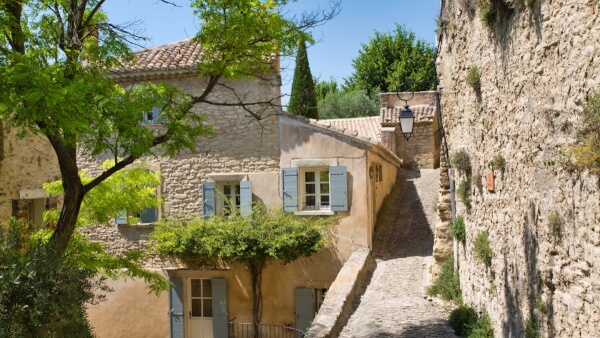Expat health insurance for France: A complete guide
Learn everything you need to know about expat health insurance for France, from finding the best providers to accessing healthcare and managing costs.

France is known for many things: romance, wine, the arts and fine cuisine. What you may not know, however, is that the European country also boasts some of the world’s most elite public schools. In fact, France ranks number five in the world for excellence in education, according to U.S. News & World Report, sandwiched just between Australia and Switzerland.
So to what do they owe their success in schools? While traditional teaching methods and a nationally standardized curriculum in combination with high standards and rigorous discipline may not sound revolutionary, it certainly seems to be working for France. That being said, the level to which academic rigor is enforced is relatively unique, and is clearly paying off in a big way for students.
The overall philosophy of the French education system revolves around a few key points: the teacher as the ultimate classroom authority, encouraged competition between peers, emphasis on memory-based learning versus creative thinking and extremely high expectations for academic achievement. The country places a clear emphasis on education, with a whopping 21% of the national budget set aside for funding. The results are also clear - the literacy rate in France is 99%.
But how does such a disciplined system work? Whether you’re moving your family to France to start a new business, take a job or just for a change of pace, it’s important to understand the educational structure, timeline and cost of sending your children to school in the European country. This guide provides an overview of what you can expect from the education system in France.
Education in France isn’t required until children turn six, however, most children do enter some kind of preschool by the time they’re three years old. From age six onwards, education remains compulsory until age 16. Most French students continue on to finish their education at age 18, by passing the baccalauréat (le bac) examination, and 50% of 18-21 year olds participate in higher education.
| Grade | Age |
|---|---|
| Preschool | |
| Maternelle Petit | 3 |
| Maternelle Moyenne | 4 |
| Maternelle Grande | 5 |
| Primary School | |
| C.P | 6 |
| C.E. 1 | 7 |
| C.E. 2 | 8 |
| C.M. 1 | 9 |
| C.M. 2 | 10 |
| Secondary School | |
| 6ème | 11 |
| 5ème | 12 |
| 4ème | 13 |
| 3ème | 14 |
| 1ème | 15 |
| 1ère | 16 |
| Terminale | 17 |
Preschool isn’t required in France, however, most parents do choose to enroll their children by the time they’re three years old. Unlike preschools in the United States or Canada, maternelle is fully funded by the French government, so parents aren’t required to pay a fee to send their children to preschool. Children typically begin school around 8:30AM and finish around 4:20PM.
If you’re from the U.S., UK or most of Europe, that schedule may seem a little intense, but it’s broken up by a two hour lunch period in the middle. While most children eat at la cantine, where they’re served healthy, “adult” food (like octopus salad and grilled fish), many parents pick their kids up to eat lunch at home. The long lunch period is also the norm in French businesses, so often the whole family will take the opportunity to have a sit down lunch together, versus a standard family dinner in other parts of the world.
Preschool students typically attend school Monday-Friday, with a half day on Wednesday. This remains true for the entirety of their education. The long hours and week aren’t only good for child development, but are helpful to parents who would otherwise be forced to find after school care for their kids.
Preschool is a time for children to learn basic reading, writing, penmanship and math, as well as develop social and emotional schools. The ultimate goal is to prepare students for C.P., which represents their first year of formal schooling.
Because preschool is government funded, a place is offered to any student who is a resident. All you need to do to register child is visit the preschool in your locality, where you’ll be asked to fill out a registration form and submit important documents, like the child’s birth certificate and medical records, proof of your French address and proof of your visa and/or residence card.
Primary school is mandatory for French children ages six to 11. Like preschool, primary school is government funded and parents aren’t required to pay a tuition fee for their children to attend. Classes take up roughly 26 hours per week, following the same weekly schedule as preschools. Primary schools created by the town or city, however, the direct responsibility for establishing schools lies with the states.
The school’s administrators include a school director and a school council. The school council is responsible for overseeing and making decisions that pertain to academic regulations, parent-teacher communication, what children eat at la cantine, provisions for post-school care, organization of extracurricular activities and school security. This council is made up of teachers, parents and members of the local education ministry. Typically the council meets up to twice a year, though in some areas they may be more active.
By the time students are in primary school, their academics begin to take on a more distinct structure. Curriculum includes French, history, geography, civics, math, science, tech, physical education and art. The amount of time students spend on each subject can fluctuate, and is ultimately left in the hands of the teachers. Teachers may determine whether individual students or entire classes are in need of more focus in a certain subject area, and may thereby extend the number of hours per week children learn about that subject.
Grades in primary school include CP (cours préparatoire), CE 1 & 2 (cours élémentaire), and CM 1 & 2 (cours moyenne). Registering students for primary school involves much the same process as registering for preschool: a visit to the relevant school in your district with the correct paperwork should suffice to get your child registered.
After leaving primary school, children are required to attend secondary school, or college until they’re 15. At that point, students take an examination which determines how their education will continue, and they’re no longer required to attend school at all. Most students go on to attend lycée, which is the equivalent of high school. Lycée usually lasts until age 18 in the cycle long, where students prepare to take the baccalauréat (le bac) exam. Le bac ultimately decides their placement in university. Other students in lycée attend the cycle court instead, which is the equivalent of a vocational course. Students in the cycle court typically don’t take le bac right away - instead, they aim to get their brevet d’enseignement professionnel (BEP) or Certificat d’aptitude professionelle (CAP). Both of which can lead to the baccalauréat professional.
Where your child attends secondary school is largely chosen by the geographic region in which you live. For families in major cities there may be some choice available, while families living in more rural areas will likely only have one option in school systems for their children. In cities, schools can be rather competitive, and students aren’t guaranteed entry to the school of their choice. Rather, their ability to attend is determined by academic merit. This is extremely important to the student’s overall career, as attending a subpar college often means attending a subpar lycee, and students who don’t matriculate from the most elite lycees are often passed over by the most elite universities. The most important part of this equation falls at the college level, as many colleges are attached to lycees, and students advancing from one to the other within the same school are typically given preferential admission.
Grading in France is standardized across regions, and remains the same through school levels starting in college. All class materials - whether they’re assignments, quizzes or exams - are graded out of 20, and a passing grade is 50% or 10 points out of 20.
This grading was set up as preparation for le bac in 1830. It has remained unchanged since that time. The grade breakdown is:
| Grade | Description |
|---|---|
| 10-11.99 | Passable (pass) |
| 12-13.99 | Mention assez bien (good pass) |
| 14-15.99 | Mention bien (pass with merits) |
| 16+ | Mention tres bien (pass with distinction) |
This grading system is used in school as well as on le bac itself. Students who don’t pass le bac but receive a grade above eight are allowed to retake the exam.
Students in France typically begin their academic year in the first week of September, and finish at the beginning of July. In the middle they have a Christmas holiday, which starts in mid-December and lasts until the beginning of January, a winter holiday that lasts for a week in February, and a spring holiday which lasts for a week in April.
The typical school day lasts from 8:30 in the morning until 4:30 in the afternoon, though older students with a heavier courseload may stay longer. Those hours are punctuated by a significant lunch break, typically of an hour and a half or more. During that time students are allowed to leave school to eat lunch with their families, or eat in la cantine.
Unlike most countries, free public school in France does not cover all of the student’s educational requirements for the duration of their education. Students attending lycee are responsible for their own books and supplies, a number that can seriously add up. That being said, low-income families may qualify for a “back to school allowance” that helps them cover those costs, and students are often able to find second hand books to mitigate some of the fees.
Despite the fact that public school is mostly free for all children residing in France, it’s not uncommon for expat families to enroll their kids in private or international schools instead. This mostly stems from the child’s inability to communicate in French, and parents sometimes choose to move their kids to public school once they have a significant grasp of the language. Alternatively, parents of younger children (for whom language acquisition is still relatively intuitive) tend to send their non-French speaking kids to preschool as a way to help them both pick up the language and assimilate into local culture.
Many international schools present as bilingual schools, meaning they have sections for both French and English, and often students will bounce between languages throughout their school day. While these environments are tailored for students for whom French is their native language, children who don’t speak French are often given intensive French lessons to catch them up and prepare for the bilingual curriculum.
While this type of education can prove incredibly advantageous for helping your children learn French and assimilate into the community, it also comes with a significant cost. Annual tuition for an international school in Paris can run anywhere from €7,000 to €25,000 per year. Those costs are compounded by the price of school supplies, transportation and books. Unlike many european countries, French students are rarely required to wear uniforms, however, they’re often dictated a specific sports kit for their physical education class. Those kits are typically the responsibility of the parent to buy, and students often need multiple sets to get them through the school week.
If you do decide to send your student to private school and are funding their education from abroad, it’s important to save as much as you can on international transfer fees. While a typical international wire through your bank can rack up significant costs, a service like Wise can help you find the real exchange rate, and reduce those fees by breaking your international transaction into a series of local ones.
Regardless of whether you choose public, private or international school, your kids are likely to receive an excellent education within the French school system. Wherever you are in your transition to France, you’re sure to enjoy the relative freedom and ease of living that comes with life in the European country. Good luck, or as they say in French, bon chance!
*Please see terms of use and product availability for your region or visit Wise fees and pricing for the most up to date pricing and fee information.
This publication is provided for general information purposes and does not constitute legal, tax or other professional advice from Wise Payments Limited or its subsidiaries and its affiliates, and it is not intended as a substitute for obtaining advice from a financial advisor or any other professional.
We make no representations, warranties or guarantees, whether expressed or implied, that the content in the publication is accurate, complete or up to date.

Learn everything you need to know about expat health insurance for France, from finding the best providers to accessing healthcare and managing costs.

Read our guide on the pitfalls of buying property in France and avoid the most common mistakes.

This guide explains French hospital bills including what UK visitors and expats need to pay, how to get a GHIC refund, and more.

Staying in France for over 90 days? Find out which long-stay visa you need and how to apply. Plus, make your money go further in France with a Wise account.

Can I keep my French bank account if I move abroad? Find out everything you need to know here in our handy guide.

Read our helpful guide on how to transfer a UK pension to France, including the steps, fees and taxes involved.